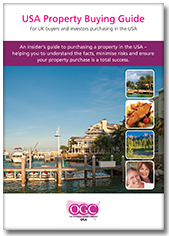Do you try to keep up to speed with happenings in the Florida property market but feel you may have missed something?
If so, take a look at a summary of the 10 most important news stories of 2011, as reported by Florida’s largest real estate trade body, Florida Realtors:
1. Once-in-a-generation time to buy?
Mortgage rates hit a record low of 3.94 per cent in 2011, homes sold for a fraction of their value five years ago and excess inventory provided every buyer with a range of options. On the downside, job insecurity and difficultly getting mortgages put off many buyers. In 10 years many Americans may look back on 2011 as the best time in a generation to invest in real estate….
2. The economy rebounded, well sorta, a bit
The Florida economy remained sluggish as unemployment rates stayed uncomfortably high and home sales stayed uncomfortably low; but, across the board, the state showed signs of recovery, with almost every economic indicator suggesting brighter days ahead. Home sales edged higher most months; selling prices held their own and, in a few cases, median selling prices rose.
3. Commercial market leaves “dire” for “not as bad”
Florida investors increasingly want to buy office, retail and industrial properties, says Cynthia Shelton, Florida Realtors’ 2009 president and a director at Colliers International in Orlando. Vacancy rates, while high, have stabilised, along with rental rates. Core assets (essential to businesses) are selling and lenders – including the life insurance companies – are lending again.
4. Florida Legislature: We got Amendment 4 and scrapped the cap
Florida Realtors had a number of victories in the 2011 Florida Legislature, but none as important as a constitutional amendment that voters will consider in November 2012, and none so hard-fought as a law to “scrap the cap” on Florida’s affordable housing trust funds. Amendment 4, if approved by Florida voters, will create a property tax increase cap of 5 per cent each year on non-homestead real estate, down from the current 10 per cent cap.
5. Fasten your seatbelts: property insurance is a bumpy ride.
Lawmakers wrestled with a question that has been around for years: Should property insurance be affordable or available? If affordable, a major storm could bankrupt the state. If widely available, the cost could drive buyers away and hurt current homeowners. Citizens Property Insurance, the state-owned insurer, sits squarely in the middle of the debate since it covers most of the high-risk properties and, should a major storm hit, would force all Floridians to help pay for damages. To attract private insurers to the state and cut down on the number of owners under Citizens, Gov. Scott and lawmakers made changes. Sinkhole coverage became optional and much more expensive.
6. Facts at your fingertips: Florida Realtors adds research department
Florida Realtors Industry and Data Analysis Department (IDA) opened for business in June 2011. Designed to provide practical information for association members, Chief Economist Dr. John Tuccillo says the department will help Realtors in Florida deal more effectively with increasingly educated consumers.
7. Loan modification programs do little for at-risk homeowners
The government created, and modified, a number of programs slated to help owners facing foreclosure, but most applied only to about half of those in trouble – owners who had mortgages held by Fannie Mae or Freddie Mac. The issue led to strategic defaults – foreclosures where investors could afford to pay but walked away as a financial decision, court back-ups, and a system that allowed some non-paying owners to live in a home for over two years before authorities finally foreclosed.
8. Should we slow the recovery to avoid another crisis?
While the federal government has tried to spark home sales through a number of programs (see No. 7 above), it has also created obstacles to homeownership by boosting mortgage rules, tightening appraisal standards and restricting the amount homeowners can deduct from federal taxes. A key concern of realtors heading into 2012 is the qualified residential mortgage (QRM) rule – a minimum standard that mortgage loans must meet before Fannie Mae or Freddie Mac will consider buying them.
9. Social networking goes from ‘cutting edge’ to ‘must do’
Social networking was once the realm of early-adopters, and realtors sold it to clients as “look what I can do for you.” Now, Facebook, Twitter, YouTube, Goggle+ (new in 2011) and other social networking sites are standard in the real estate business.
10. 2011 realtors are different than 2005 realtors
The skills needed to sell a house have changed. Realtors spend a lot more time talking to banks, trying to find out what’s happening with a client’s short sale, understanding new laws governing short-sale sellers and so on. Realtors learned to accept disappointment – sales that fell apart at the last minute, appraisals that came in lower than hoped and clients who wanted a bargain below any reasonable expectations.
For details of property for sale in Florida, and all across the USA, visit the USA listings on Rightmove Overseas. One way to save money when buying in the USA is to use a currency specialist when transferring your pounds into dollars to complete the purchase of your property or make regular mortgage payments. For more information on this, contact Smart Currency Exchange.
To understand the full step-by-step process to buying a property in America, collect The Overseas Guides Company’s ‘USA Property Buying Guide’
